'˜It's been a privilege' - Hannah bows out after 32 years at Foyle Hospice
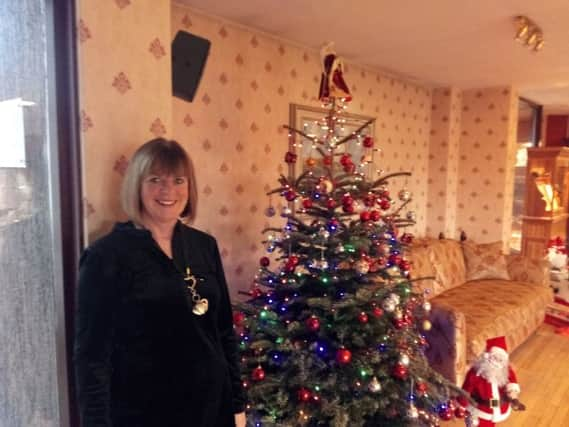

After dedicating more than 30 years to helping hundreds upon hundreds of the Hospice’s patients and their families, Hannah recently retired from her post as Home Care Nurse.
The ‘Journal’ caught up with Hannah in the tranquil setting of the purpose-built in-patient hospice on the Culmore Road, but this is not where the story of the Foyle Hospice begins.
Advertisement
Hide AdAdvertisement
Hide Ad“When I started there was no Hospice, no actual building,” Hannah recalls.
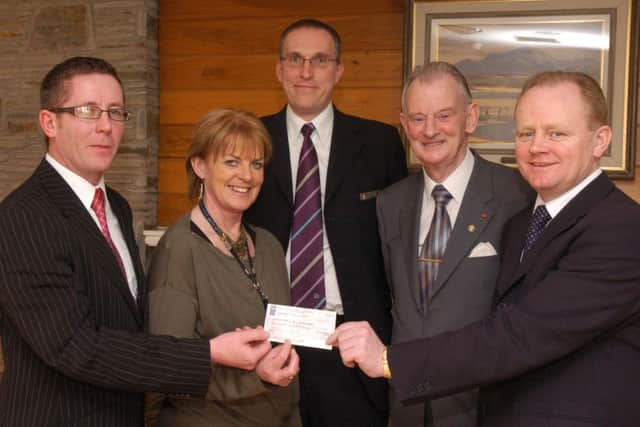

“It was 1985. Dr. Tom McGinley had just bought an office in Crawford Square, a big empty house. He wanted to start off with two home care nurses because he knew that the majority of people at the end of life wanted to be cared for at home.
“So I travelled to St. Mary’s Hospice in Birmingham and I did an ‘End Of Life’ training course. Rosemary Peoples joined me. We both did a six weeks’ training course and we started off in Crawford Square.”
A native of Portglenone in County Antrim, Hannah had earlier trained as a nurse at Musgrave Park Hospital in Belfast, before coming to Altnagelvin Hospital to do midwifery.
Advertisement
Hide AdAdvertisement
Hide Ad“I worked in that for a few years, and then as a District Nurse for a few years before the Hospice,” she said. “It was a big change to go from midwifery to palliative care.”
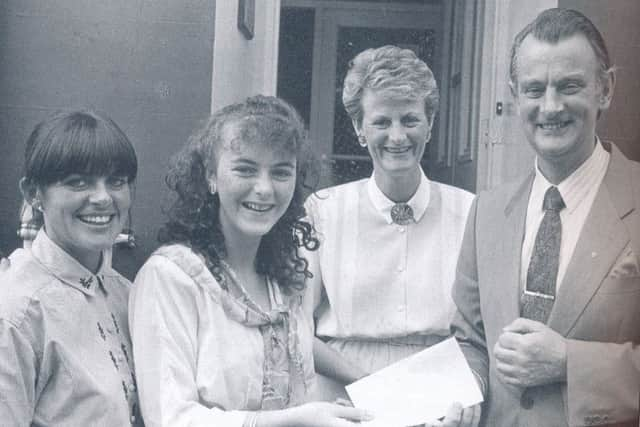

But the team wasted no time in getting the service up and running and Hannah praised the determination of Dr. McGinley and the people of the city for making sure the Hospice project would become a reality.
Hannah said the people of Derry and the wider north west have been, and continue to be, fantastic in their support for the Hospice.
“Without them it would never have got there. And Tom McGinley was out there doing walks and runs and he was fundraiser, Medical Director, the committee, he was everything and encouraging us to keep going with it. Tom McGinley worked day and night. He would have been called out at night, in those days there was no doctor relief here. He worked in his practice and he came down here at lunch time and did a round.
Advertisement
Hide AdAdvertisement
Hide Ad“It was a new service and we were focused on setting up the service in a way that we felt was what people needed, basically trying to meet the needs of people in this area.
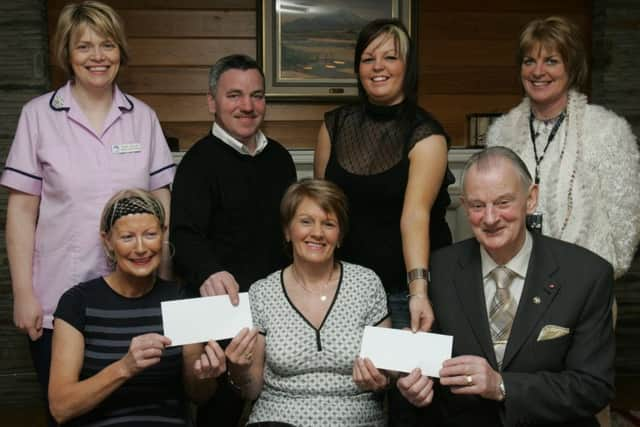

“Our role, myself and Rosemary, was supporting patients and relatives in palliative care, and supporting symptom control in their own home.
“Our first question was where do we get referrals? Dr. McGinley invited all the GPs in the town and introduced us to them all at Crawford Square. Every practice was represented and I think that says it all about the need there was for it. Dr McGinley explained our role and that connection made it a lot easier for us setting up this new service. The contacts were there. And Rosemary and I had both had been working as community District Nurses before that, so quite a few of the GPs would have known us.”
Hannah and Rosemary were also tasked with educating other community staff on the philosophy of palliative care. “There were problems we faced at the time. Hospice was a new idea here in Derry and cancer was still a bad word; hospice was a bad word and we did come up against meeting people saying ‘don’t tell him you’re from the hospice’. There were a lot of homes you went to, and they liked this idea of someone trained in symptom control, and they needed it, but there was also this problem of not telling people. Not everyone was told that they had cancer 32 years ago. Now the majority are told.
Advertisement
Hide AdAdvertisement
Hide Ad“I remember going to visit a wee lady in her 80s. Her daughter came to the door and said, ‘don’t say you’re from the Hospice’. I said, ‘I wouldn’t say I’m from the Hospice, I’ll just say I’m a nurse dealing with your medication. But if she asks me directly we can’t lie to patients. I went upstairs and spoke to the wee lady and said, ‘I’m a nurse here to look at your medication’, and she said: ‘Sure I know you, you’re Hannah, your photo is always in the ‘Journal,’ you work in the Foyle Hospice!’
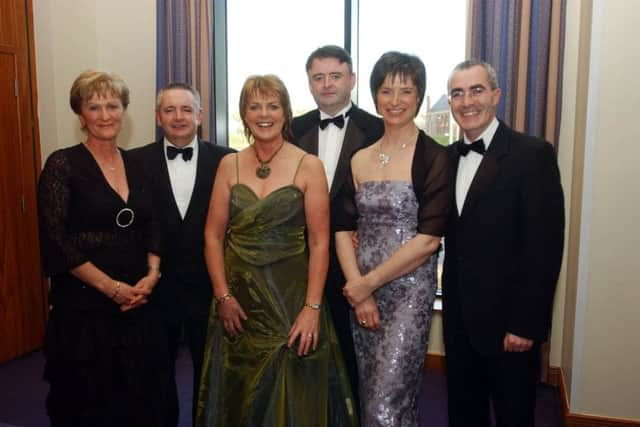

The ‘Journal’ was taking our photo every week to advertise this new service. The photographers came every week for cheque presentations.”
Palliative support and care is not a job everyone could do, nor is it a career you can leave at the office door and Hannah admits there were some very sad occasions over the years.
“My support was Rosemary, Rosemary’s support was me,” she declared. “We were both young and single at the time and then at a later date we both got married and had children.
Advertisement
Hide AdAdvertisement
Hide Ad“I remember the ‘Hospice Ball’ in 1989 when Dr Tom told me I ‘must go to the ball’. I had nobody to go to the ball with, so I wasn’t going on my own, as it was all couples. So I invited Michael, who worked in Dr Tom’s practice. We would have known him, he was the single one. So I invited him along and I ended up marrying him!”
Hannah and Michael went on to have three sons, Mark (27) Paul (25) and David (24), and she said her husband and children have been very supportive during her career with the Hospice.
Discussing the Hospice as it is today, in its leafy surroundings , Hannah said: “It’s unrecognisable. This was just fields. When the Hospice was built none of the trees at the entrance were there. They were planted there in memory of those who had died.
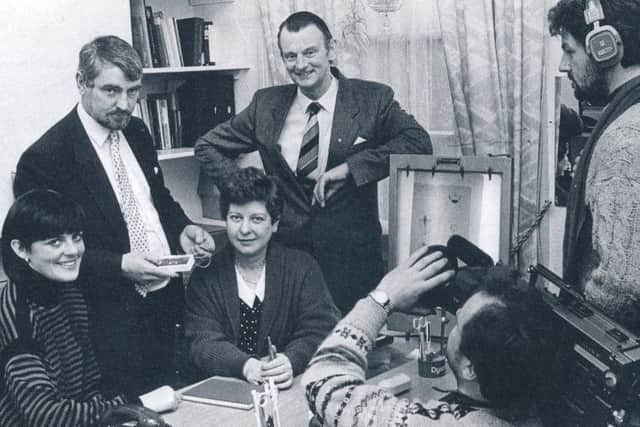

“The opening day [1992] was a brilliant day, not just for me, but for everyone. It was such a lovely sunny day, the gardens were lovely and all those people supported it, their money paid for it. It belonged to the people of the north west, Derry, Limavady, Strabane and Donegal- at that time we covered Donegal and then many years later the Hospice was opened in Donegal. We did a lot of visits in Inishowen and people from Inishowen would have been admitted here.”
Advertisement
Hide AdAdvertisement
Hide AdShe said that once the facility at Culmore had been realised, the team had to address the perceptions people had about a hospice. “There was a perception that if you are going into a hospice you are going to die. That was a big thing: ‘no I’m not going into the hospice because I will never get out again’.
“Our role then was - we visited people at home, and after the Hospice opened we would encourage people to come down for pain and symptom control, so they did . . . and they got home again. So it was making people aware that they didn’t come in to die; that they got symptoms controlled and returned home. There were also some people who did come in to die. It’s not always possible to care for people at home. There is the difficult symptoms that they just need 24 hour observation and need medication every four hours. So those things were best treated in here. So some people did come in to die, but many got home and still do.”
While Rosemary later took on the Matron post within the Hospice and worked at educating other staff in setting up the unit, Hannah continued in Home Care and has witnessed Home Care staffing numbers triple from two to six.
Commenting on working with local families in the community, she said: “We visited patients and families to prepare them for the death of their loved one.
Advertisement
Hide AdAdvertisement
Hide Ad“We provided, and they still provide, a follow-up bereavement support to the families and that was very important.
“The majority of people coped well and I felt that we were supporting them following the loss of the person we had visited. You were preparing them for the grief that was going to occur.
“Families were great and still are. It’s amazing how much people take in and how vulnerable people can be. “Personally, I haven’t needed it and I’m sure everybody out there felt this Hospice was for other people. Now 32 years later there are very few families in Derry that haven’t needed it and have needed it more than once.
“In fact, there are quite a few families who have had three or four relatives admitted.”
Another milestone was the opening of the Day Care Service.
Advertisement
Hide AdAdvertisement
Hide Ad“Some of the patients that we were visiting at home were reasonably fit to get out and about. We brought them down to Day Care therapy one day a week. They received relaxation therapies and that has now developed into the purpose built Day Care Therapy Unit. We recognised the need for that service back then.”
And a visit to the Hospice Day Care Unit can prove, sometimes contrary to expectations, a very positive experience for a patient. “There’s a lot of fun within the Hospice,” Hannah maintained.
She plans to keep in contact with her colleagues and is enjoying having a bit more time to spend with family and friends and to now take life at a more leisurely pace.
“I now have a grandchild, Harry. He was one year old a couple of weeks ago so it’s nice to have the time to spend with him. You do everything at a slower pace. If I go shopping, I take my time. Before I felt I had 10 ten minutes to do this. Michael and I have also been to Iceland and I am thankful I had been given the opportunity to retire in good health unlike many we have met and worked with over the years.
“The Foyle Hospice has been an undoubted success story and I have been so privileged to be part of that success,” she concluded.